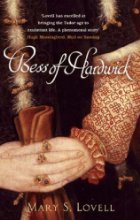Last week, in my creative writing class in Clonmel, the students created characters and were encouraged to make them do slightly crazy things, like walk around the room. They did it dutifully, but dubiously. I was a little surprised, as most groups relish the chance to play God, but these things happen. Some exercises work brilliantly with one group and fall flat with another.
So this week, I acted on a hunch and for my class on setting, I used a piece of text from John McGahern’s memoir, an evocative tribute to his home county of Leitrim.
The hunch was correct. They drilled deep into the piece and relished the description of nature. Later on, their attention was riveted by a contribution from one of the students about a colourful military character.
Why are some people drawn to the robust realities of non fiction, while others prefer fictional flights of fantasy? And which is more compelling?
Let’s take the Tudors as an example.
Non-Fiction Treatment
There’s nothing to beat the truth. That’s why people are drawn to non-fiction. As they read Mary S Lovell’s biography of Bess of Hardwick, one of the most powerful women of the Tudor age, they know that these amazing events – the four marriages, the imprisoned Scottish queen – are actually real. They’re also comforted by the fact that all the facts that Lowell has backed up all the facts she presents in the book with meticulous research.
Fiction Treatment
Meanwhile, people who read a book like The Other Boleyn Girl by Philippa Gregory will get a sense of what it’s really like to be a Tudor. They can get under the skin of a character and experience the world through their eyes. Non-fiction may give you an accurate picture of a country or a period of time, but fiction gives you the chance to travel there.
And when you can marry the two, you’ve a match made in heaven, as is demonstrated by Hilary Mantel’s masterful series of books on Tudor powerhouse Thomas Cromwell, Wolf Hall and Bring up the Bodies.
Which is more compelling, fiction or non-fiction? You decide. I’d love to hear your thoughts.


Interesting question! My thoughts are that a good book should either be very entertaining or very informative, with the ideal being a mixture… Of course, the only example that comes to mind of that (besides the two you mentioned, neither of which I have read) is Erik Larson’s *Devil in the White City,* but that isn’t one of my favorites.
So, I’ll revise my answer to be that I enjoy reading fiction more overall, but I do enjoy a good nonfiction about every 5th book I read 🙂
LikeLike
Your views are in line with my own, which makes you a very smart reader 🙂
LikeLike
Hi Derbhile, that is a difficult choice to make! An author can take a fiction story anywhere they want it to go, manipulate the plot to make the story compulsive reading. Although when I read non-fiction, I find myself more moved by events that I know actually happened. I really can’t decide between the two, but as I read a lot more fiction I would have to go with that!
LikeLike
Hi Izzy. We can’t really compare the two, but it’s just interesting the difference between how fiction and non fiction writers handle their subject matter – and what makes their readers decide to choose them.
LikeLike
Wonderful post! I am a big fan of historical fiction and non-fiction. For me it is a cyclical almost symbiotic relationship. After all, for centuries, we have been told stories about people in their place and time, to teach historical lessons. When I read The Other Boleyn Girl years ago, I was then inspired to read biographies about her, Queen Elizabeth, and the Protestant Revolution. My fascination with Abraham Lincoln and his wife Mary Todd, led me to read Mary, Mrs. A Lincoln, an engrossing book of historical fiction from the point of view of Mary Todd Lincoln. In conjunction with reading the Classic Slave Narratives, I read Uncle Tom’s Cabin, Stand the Storm, and Cane River. I know many middle school kids who read The Book Thief then wanted to learn more about the Holocaust, specifically what could make so many people hate and murder so many? I could go on with so many other examples, but I find that what you say resonates with me. Read the scholarly non-fiction books, yes. But also read well researched historical fiction to get under the skin and see through the eyes of persons who could have lived it. It makes for a much deeper connection. I don’t think one is better than the other, I think they each serve an imperative purpose and flavor that when put together is like the magical joining of peanut butter and chocolate in a Reese’s Peanut Butter Cup. Thanks for this great post – Ilene
LikeLike
Thanks for this. I’ll have to try to Reese’s Peanut Butter cup to test that analogy!
LikeLike
Thanks for that. I’ll have to try a Reese’s Peanut Butter Cup to test the analogy.
LikeLike